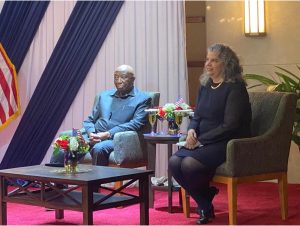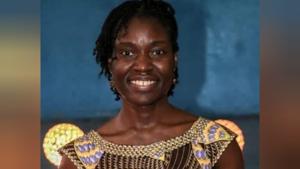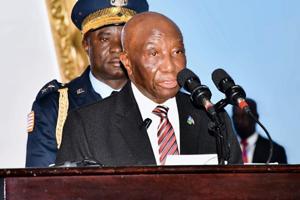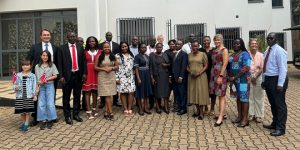P4DP Female Participants Recommend Justice for Abandoned Girls
Participants in discussions surrounding findings in the research of the Platform for Dialogue and Peace (P4DP) have called for actions to end social stress and constraints women and girls are undergoing that help to expose them to prostitution and sexual abuse.
At the end of a four-day validation of the group’s Gender Based Violence research findings with the Audio Visual Documentation, the women called for addressing the plights of abandoned girls who have become inclined to prostitution, pushing stakeholders to ensure that these vulnerable girls have access to justice for whatever reason that has led them to live such humiliating life.
The initiative under the theme: ‘Mobile4 Women Project – Validation,’ began in Grand Bassa County with participants from both urban and rural communities blaming the justice system, particularly on the Liberia National Police, of not doing much to address access to justice.
The validation exercise was intended to contribute to the promotion of Gender-Sensitive Human Rights (GSHR) in Grand Bassa and Montserrado Counties, using the Audio Visual methodology in urban Monrovia to examine gender and social norms in order to understand the underlying factors contributing to SGBV, and how Liberian women and girls in urban and rural communities experience marginalization.
The four-day activity held among communities in ten of the seventeen districts in Montserrado County was facilitated by a representative of the Ministry of Gender and Social Protection, Madam Marie O. Coker.
According to Madam Coker, “Children, mostly girls, are likely to end up being a prostitute when they leave the home apparently because of harsher punishment from their biological parents or foster parents and subsequently in the streets to be sexually abused by men.”
“Meanwhile, running away from homes is one of the causes that can lead to many girls being involved with substance abuse, and other deviant activities that affect their future,” said Madam Coker.
She lauded P4DP for the initiative and called on line ministries and other civil society institutions to support P4DP and partners’ project to help educate women especially those in the rural areas to understand the access to justice and other relevant domestic violence issues.
Earlier, P4DP Gender Officer, Deimah Kpar Kyne McCrownsey said, “The exercise will provide the research team with the opportunity to examine in detail the perceptions of underprivileged and marginalized women and girls on SGBV, and its actually perceived threats, and the notion of man versus women’s options for justice, and the role of both traditional and community leaders in providing justice, specifically for women”.
Mrs. McCrownsey also said the research discovered that instances of issues affecting women are properly and holistically resolved at statutory courts, even though it is the same sometimes at the community and traditional levels. However, comparing the ratio, women reportedly get redress of GBV issues through the community and traditional leaderships.
Some of the reasons given for this action include the harsh financial burden often placed on them by the police and statutory system of justice, as compared to the community and traditional system of justice.
Members of the marketing association also participated in the sessions. Based on its commitment to participatory methodology, P4DP technical gender specialist, Horace Nagbe, said “This validation exercise offers a ’civic participatory space for key stakeholders that were consulted during the initial engagements to discuss emerging findings and also participate in the Audio Visual documentation”.
Joyce B. Williams, a participant from West Point said, “Generally, we the females appreciate the peace building and research organization for creating forums to allow women and girls in remote towns and villages to freely express their views and experiences on issues affecting us”.
Also, a member of the Trafficking Task Force, Emmanuel Kollimealyne said, “I applaud the joint participation of males and females and particularly I am impressed to hear that in other regions women are challenging traditional social and cultural norms around masculinity and women and doing what men can do.”
Mr. Kollimealyne observed that female issues ranging from “partner beating, societal perception and the role of a woman to that of man, cash violence and teenage initiation in sande practice, and lack of child support as well as discriminatory justice system among others are few of the critical issues needing address by stakeholders.
The participants thanked P4DP and asked that during the awareness sessions, P4DP should visit more rural communities to reach the last man and woman in those areas.







